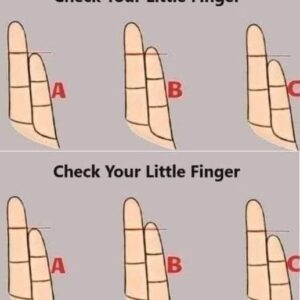Former President Barack Obama has drawn attention — and criticism — after condemning former President Donald Trump’s decision to deploy the National Guard to Chicago in response to rising violent crime, calling it “inherently corrupting” for any president to use the military “against their own people.”
Obama made the remarks during the final episode of comedian Marc Maron’s “WTF” podcast, released Monday. The discussion focused on the state of American democracy, polarization, and what Obama described as “the dangerous politicization” of national institutions under Trump’s leadership.
However, his comments quickly ignited debate online, with critics accusing the former president of hypocrisy — pointing to his own administration’s use of federal force during protests and unrest a decade earlier.
Obama Warns Against Militarizing Domestic Issues
During the podcast, Obama said that he believes Trump’s approach to domestic law enforcement represents “a genuine threat to democracy,” arguing that deploying troops for local policing undermines long-standing constitutional boundaries.
“When you have a military that can direct force against their own people, that is inherently corrupting,” Obama said. “And when you start to see the politicization of the military — deliberately — that’s when democracy begins to erode.”
Maron interjected, noting, “They just landed in Chicago!” — referencing the arrival of National Guard troops ordered by Trump the previous week.
Obama continued, referencing the Posse Comitatus Act, a post-Reconstruction law that restricts the use of the U.S. military for domestic law enforcement unless there is an extraordinary emergency.
“When you have what looks like a deliberate end run around not just a concept but a law that’s been around for a long time — Posse Comitatus — that says you don’t use our military on domestic soil unless there’s an extraordinary emergency,” Obama said. “To call street crime an insurrection or a terrorist attack — that’s a deliberate effort to weaken democratic norms.”
Maron added, “A terrorist attack,” to which Obama replied, “Exactly. That’s a genuine attempt to redefine democracy in a way that gives government power over its own people.”
Trump Defends His Decision
Trump ordered the deployment of roughly 200 National Guard troops from Texas to Chicago in early September, citing a dramatic surge in gun violence over the Labor Day weekend.
“When I turn on the news and see that nine people were killed and 54 were injured in one weekend, I say, ‘That’s not our country,’” Trump said in remarks at the time. “We can’t sit back while innocent people are being shot in the streets. We have to do something.”
According to ABC 7 Chicago, 58 people were shot across the city over the holiday weekend — an 87% increase compared to the same period the year before.
White House officials described the deployment as temporary and “purely supportive,” assisting local police with logistics and security coordination but not conducting arrests or street patrols.
Still, the move sparked strong reactions from Democrats, with many accusing the Trump administration of overstepping federal authority and using military optics for political purposes.
Critics Call Out Obama’s ‘Selective Outrage’
Obama’s criticism, however, reignited discussions about his own record on federal responses to civil unrest.
Conservative commentators and several former law enforcement officials pointed out that the Obama administration had also deployed federal officers and National Guard units during domestic crises, including the 2015 unrest in Baltimore following the death of Freddie Gray, and the 2016 Dakota Access Pipeline protests in North Dakota.
“Obama used National Guard troops during riots in Baltimore, but when Trump sends a few hundred to help stop shootings, suddenly it’s the end of democracy,” conservative commentator Mark Levin posted on X. “The hypocrisy is stunning.”
Others noted that while Obama’s remarks were framed as a defense of democratic principles, they seemed inconsistent with his own administration’s actions.
“If the principle is that the federal government should never use military resources domestically, that’s one thing,” said political analyst Rebecca Fields. “But it’s hard to apply that standard selectively depending on who’s in office.”
Supporters Say Obama Is Warning About Intent, Not Action
Obama’s defenders countered that his criticism was not about the use of National Guard troops in itself, but rather about the intent and framing behind Trump’s decision.
“Obama isn’t saying the military can never be deployed on U.S. soil,” said former adviser Ben Rhodes. “He’s saying it’s dangerous when a president blurs the line between law enforcement and political theater — when it’s used to project power instead of solve problems.”
Rhodes and other Obama allies argue that Trump’s frequent use of military and federal resources in response to protests and local crime was part of a broader pattern of “politicizing institutions,” from the Justice Department to the Pentagon.
Chicago’s Struggle with Crime
Chicago has long been a focal point in the national debate over crime and policing. Despite years of reform efforts and increased community funding, the city continues to experience high rates of gun violence compared to other major metropolitan areas.
The Labor Day weekend spike, with nearly 60 people shot, underscored the urgency of the situation for many residents. Local leaders remain divided on whether Trump’s intervention will help or further strain relations between communities and law enforcement.
Mayor Brandon Johnson said that while federal cooperation is welcome, “militarizing our streets is not the solution.” He added, “What Chicago needs is investment — in education, jobs, and mental health — not soldiers.”
A Clash of Visions
The exchange between Obama and Trump reflects broader divisions over how much authority the federal government should exercise in local matters.
Trump and his supporters argue that the federal government has a duty to step in when local leaders “fail to protect their citizens.” Obama and many Democrats, on the other hand, view such actions as dangerous intrusions into local governance.
“This isn’t just about one city,” said historian Douglas Hamilton. “It’s about two very different philosophies of what leadership looks like — one sees the use of force as strength, the other sees restraint as strength.”
As debate over the role of the military in domestic affairs continues, Obama’s remarks have once again positioned him at the center of the country’s political conversation — and reignited the ongoing culture clash between two former presidents who represent sharply opposing visions for America’s future.





